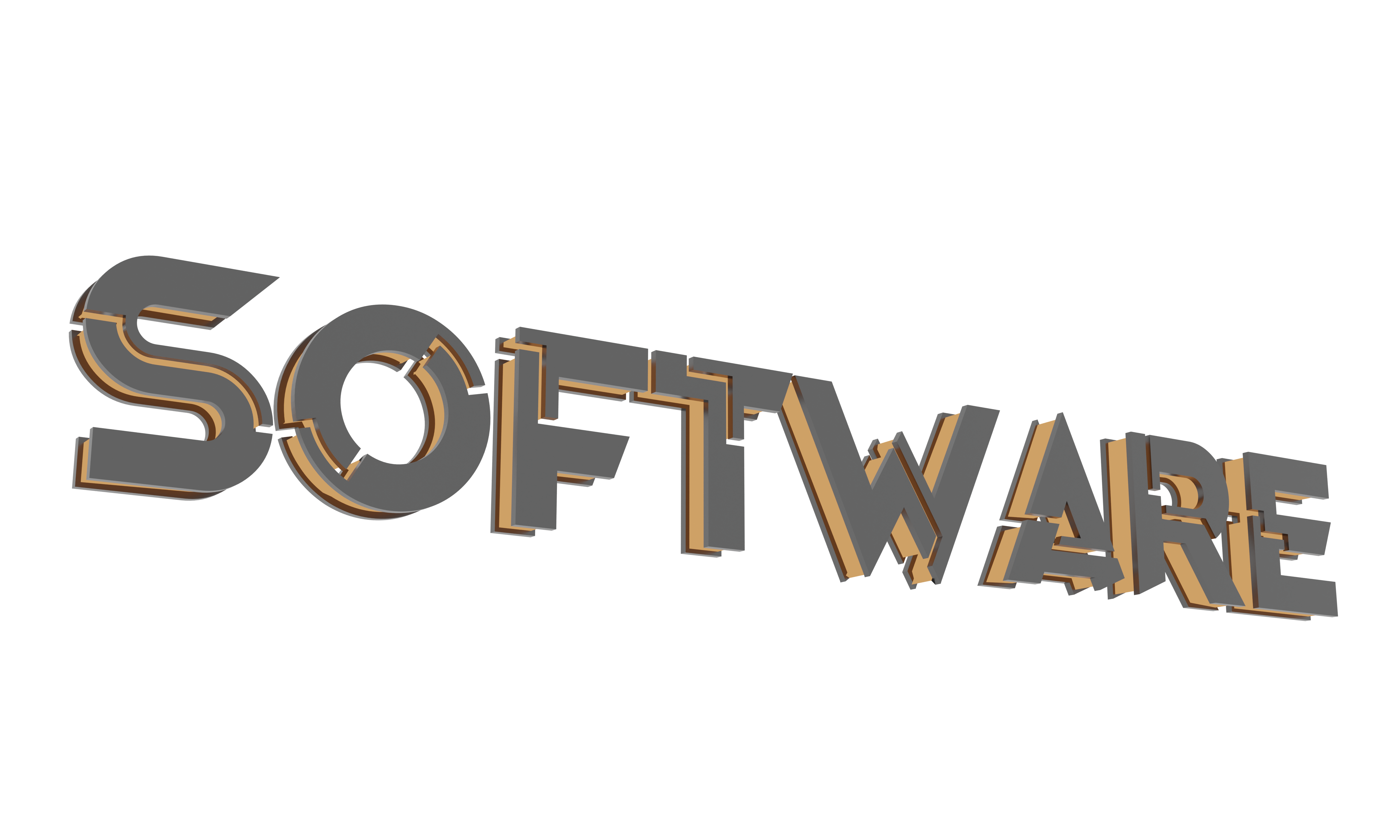
|
|
| On the occasion of the 10th edition of the Symposium on Geometry Processing in 2011, the SGP steering committee, in cooperation with the GeometryFactory as a sponsor, has established the SGP Software Award program. The intention of this award is to recognize researchers in the field who have contributed to the scientific progress in Geometry Processing by making their software available to the public such that others can reproduce the results and further build on them in their own research work. Eligible for the award are primarily open source projects and software libraries but also tools and applications. Nominations can be sent to
awardnominations@geometryprocessing.org
all year. The award is presented each year at the symposium.
|
| 2025 | Silvia Sellan and Oded Stein - and other contributors GPyToolbox - A Python Geometry Processing Toolbox |
| |
This is a very young library of general geometry processing Python research utility functions.
(github)
|
|
| 2024 | Marco Livesu Cinolib |
| |
CinoLib is a C++ library for processing polygonal and polyhedral meshes. It supports surface meshes made of triangles, quads or general polygons as well as volumetric meshes made of tetrahedra, hexahedra or general polyhedra.
A distinctive feature of the library is that all supported meshes inherit from a unique base class that implements their common traits, permitting to deploy algorithms that operate on abstract meshes that may be any of the above. This allows to implement algorithms just once and run the same code on any possible mesh, thus avoiding code duplication and reducing the debugging effort.
(github)
|
|
| 2023 | Bruno Levy Geogram |
| |
Geogram is a programming library with geometric algorithms. Geogram contains the main results in Geometry Processing from the former ALICE Inria project, that is, more than 30 research articles published in ACM SIGGRAPH, ACM Transactions on Graphics, Symposium on Geometry Processing and Eurographics. It was supported by two grants from the European Research Council (ERC): GOODSHAPE and VORPALINE.
(github)
|
|
| 2022 | Nicholas Sharp Polyscope |
| |
Polyscope is a C++/Python viewer and user interface for 3D data such as meshes and point clouds. It allows you to register your data and quickly generate informative and beautiful visualizations, either programmatically or via a dynamic GUI. Polyscope is designed to be lightweight---it does not "take ownership" over your entire program, and it is easy to integrate with existing codebases and popular libraries. The lofty objective of Polyscope is to offer a useful visual interface to your data via a single line of code.
(github)
|
|
| 2021 | Amir Vaxman Directional |
| |
Directional is a C++ library for creating, manipulating and visualizing directional fields on 3D meshes.
(project page , github)
|
|
| 2020 | Wenzel Jakob, Marco Tarini, Daniele Panozzo, and Olga Sorkine-Hornung Instant Meshes |
| |

We present a novel approach to remesh a surface into an isotropic triangular or quad-dominant mesh using a unified local smoothing operator that optimizes both the
edge orientations and vertex positions in the output mesh. Our algorithm produces meshes with high isotropy while naturally aligning and snapping edges to sharp
features. (project page, paper , github)
|
|
| 2019 | Rohan Sawhney and Keenan Crane Boundary First Flattening |
| |
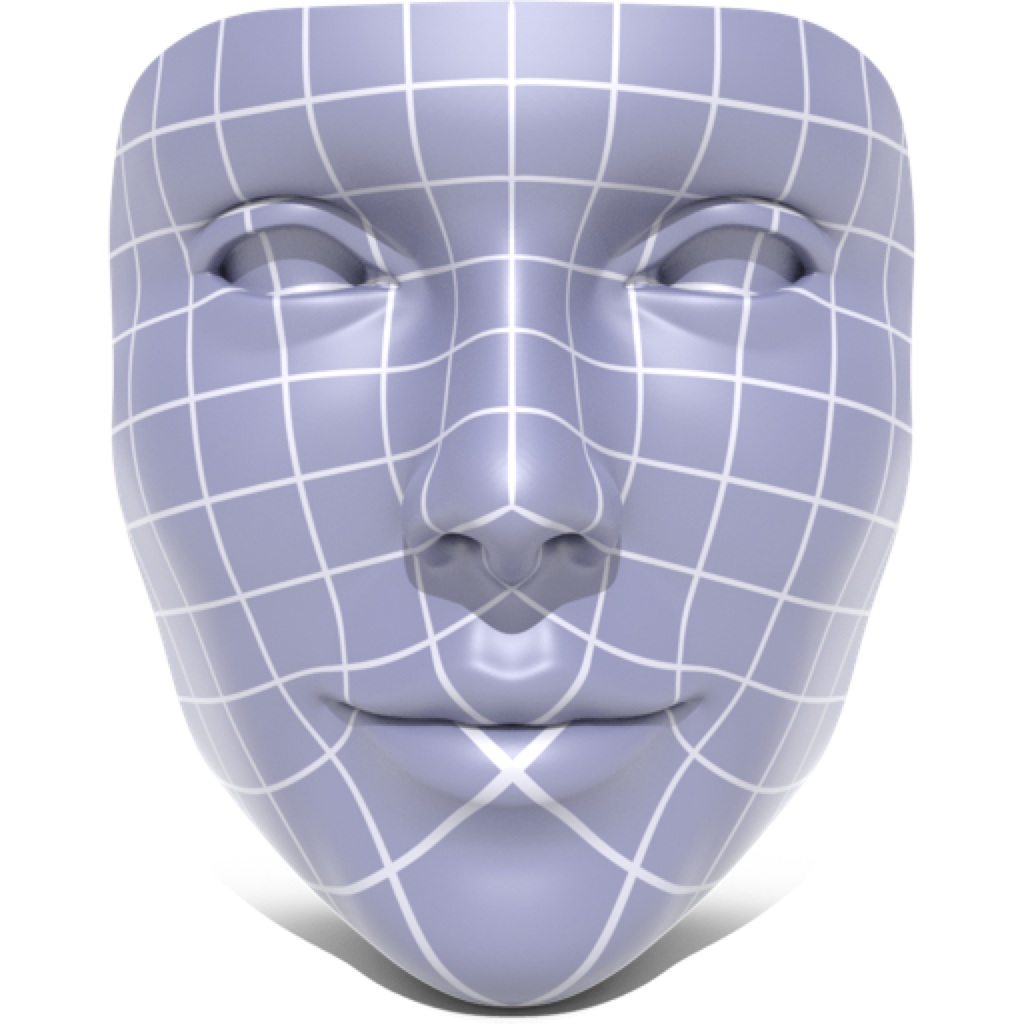
Boundary First Flattening (paper, github) is an application for surface parameterization.
BFF allows free-form editing of the flattened mesh, providing users direct control over the shape of the flattened domain.
The initial flattening is fully automatic, with distortion mathematically guaranteed to be as low or lower than any other conformal mapping tool.
BFF is highly optimized, allowing interactive editing of meshes with millions of triangles.
|
|
| 2018 | Tyson Brochu and Robert Bridson El Topo |
| |
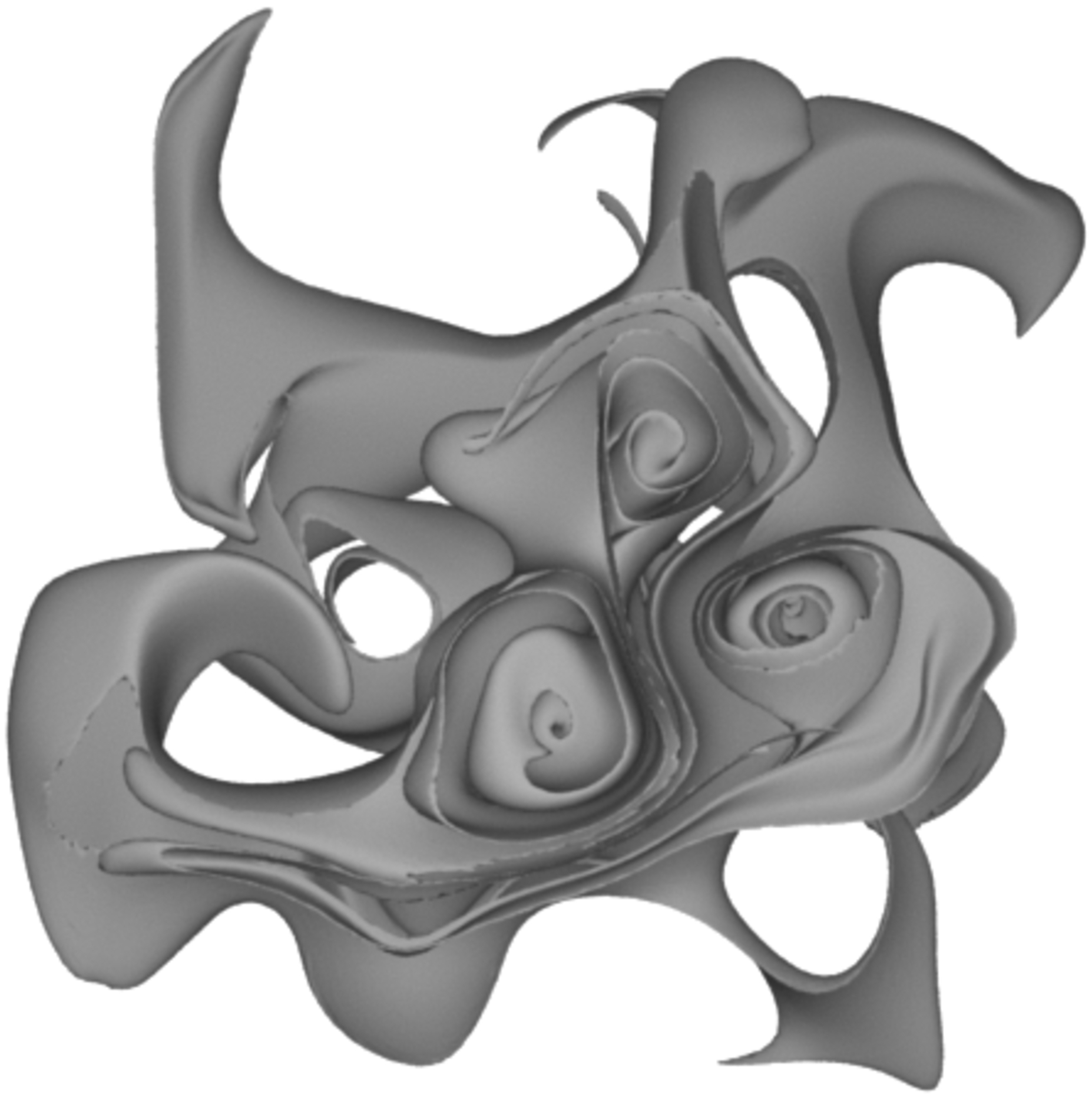
El Topo: Robust Topological Operations for Dynamic Explicit Surfaces (paper, github)
El Topo is a free C++ package for tracking dynamic surfaces represented as triangle meshes in 3D. It robustly handles topology changes such as merging and pinching off, while adaptively maintaining a tangle-free, high-quality triangulation.
|
|
| 2017 | Nicolas Mellado, Dror Aiger, Niloy J. Mitra Super4PCS |
| |

Super4PCS (paper, github) is a set of C++ libraries, standalone applications and plugins released under the terms of the APACHE V2 licence, which makes it free for commercial and research use.
It provides state of the art global registration techniques for 3D pointclouds.
|
|
| 2017 | Paolo Cignoni, Guido Ranzuglia, Marco Callieri, Massimiliano Corsini, Matteo Dellepiane, Marco Di Benedetto, Fabio Ganovelli, Giorgio Marcias, Gianpaolo Palma, Nico Pietroni, Federico Ponchio, Luigi Malomo, Marco Tarini, Roberto Scopigno MeshLab |
| |
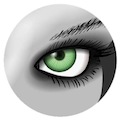
MeshLab (http://www.meshlab.net/) is an open source, portable, and extensible system for the processing and editing of unstructured 3D triangular meshes. It also supports processing of raw data produced with 3D digitization tools/devices, providing a set of tools for editing, cleaning, healing, inspecting, rendering, texturing and converting this kind of models.
|
|
| 2016 | David Coeurjolly, Jacques-Olivier Lachaud, Bertrand Kerautret, Tristan Roussillon, Pierre Gueth, Jérémy Levallois, Isabelle Sivignon, Roland Denis, Kacper Pluta, Pablo Hernandez Cerdan
DGtal |
| |
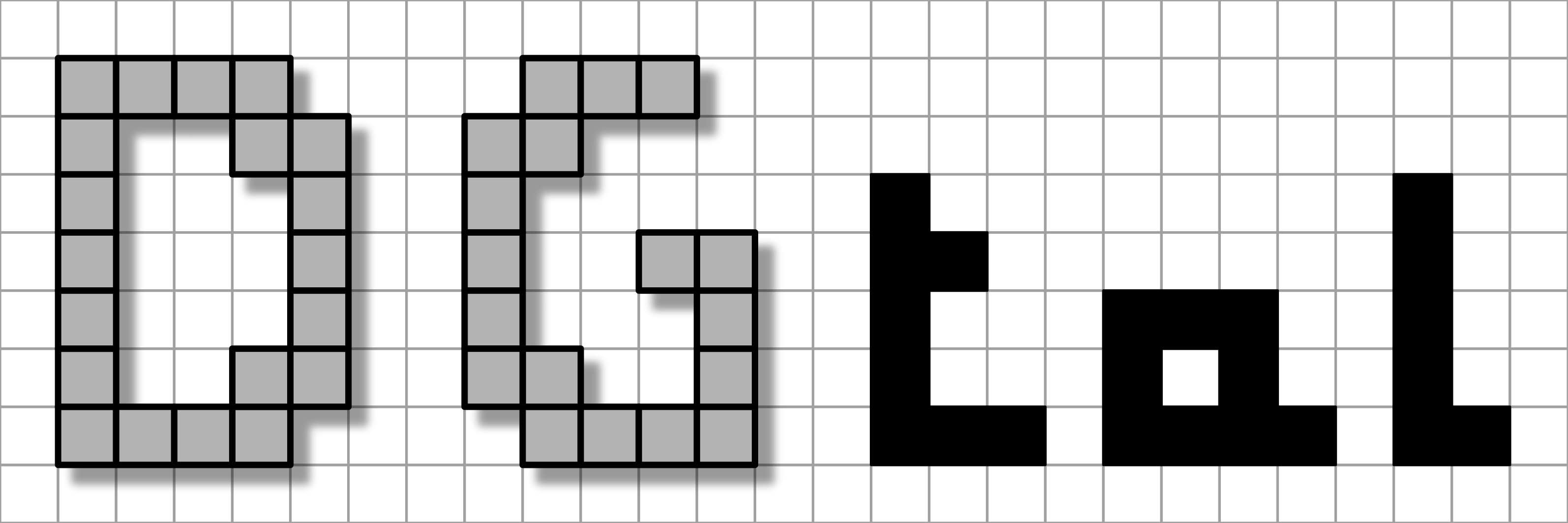
Digital Geometry focuses on the topology and geometry processing of digital structures (subsets of Z^d) with various applications in Pattern Recognition, Material Sciences or Medical Imaging. DGtal (http://dgtal.org) is a generic and collaborative C++ open source library for Digital Geometry programming whose main objective is to gather both cutting-edge and well-established developments from the digital geometry community.
|
|
| 2015 | Alec Jacobson, Daniele Panozzo, Christian Schìller, Olga Diamanti, Qingnan Zhou, Nico Pietroni, Stefan Bruggerr
, Kenshi Takayama, Wenzel Jakob, Nikolas De Giorgis, Luigi Rocca, Leonardo Sacht, Olga Sorkine-Hornung
Libigl |
| |
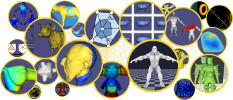
Libigl is a C++ geometry processing library. It has a wide functionality including construction of sparse discrete differential geometry operators and finite-elements matrices such as the cotangent Laplacian and
diagonalized mass matrix, simple facet and edge-based topology data structures, mesh-viewing utilities for OpenGL and GLSL, and many core functions for matrix manipulation.
|
|
| 2014 | Marco Attene MeshFix |
| |

Marco Attene is a researcher at the Institute of Applied Mathematics and Information Technologies of the CNR. He received his PhD from the University of Genoa where he was advised by Bianca Falcidieno and Michela Spagnuolo. His research focuses on problems in the domains of 3D geometric modelling, processing, and analysis.
Marco was awarded the SGP Software Award for release of the MeshFix code (http://sourceforge.net/projects/meshfix/) which robustly fixes small problems in meshes representing solid shapes removing self-intersections, fixing non-manifold issues, filling holes, and returning a water-tight mesh.
|
|
| 2013 | Gael Guennebaud Eigen |
| |

Gael Guennebaud is a research associate at INRIA Bordeaux Sud-Ouest. He received his PhD from the Research Institute for Computer Science of Toulouse where he was advised by Mathias Paulin. His research focuses on problems in the domains of point-based graphics, complex scenes, and soft-shadow rendering.
Gael was awarded the SGP Software Award for release of the Eigen code (http://eigen.tuxfamily.org/) which provides a C++ template library for linear algebra: matrices, vectors, numerical solvers, and related algorithms.
|
|
| 2012 | Hang Si TetGen |
| |

Hang Si is employed by Weierstrass Institute (WIAS) in Berlin. He received his PhD from the Institute of Mathematics of Technische Universitaet Berlin where he was advised by Gunter Ziegler. His research focuses on problems in the domain of automatic mesh generation.
Hang was awarded the SGP Software Award for release of the TetGen code (http://wias-berlin.de/software/tetgen/) which implements state-of-the-art methods for constructing Delaunay tetrahedralizations and quality tetrahedral meshes.
|
|
| 2011 | Misha Kazhdan Poisson Reconstruction |
| |

Misha Kazhdan is an associate professor in the Computer Science Department at Johns Hopkins University. He received his PhD from Princeton University where he was advised by Thomas Funkhouser. His research focuses on problems in the domains of surface reconstruction, image-progress, and surface evolution.
Misha was awarded the SGP Software Award for release of the Poisson Surface Reconstruction code (http://www.cs.jhu.edu/~misha/Code/PoissonRecon/) which reconstructs manifold and water-tight surfaces from oriented point clouds.
|
|
|
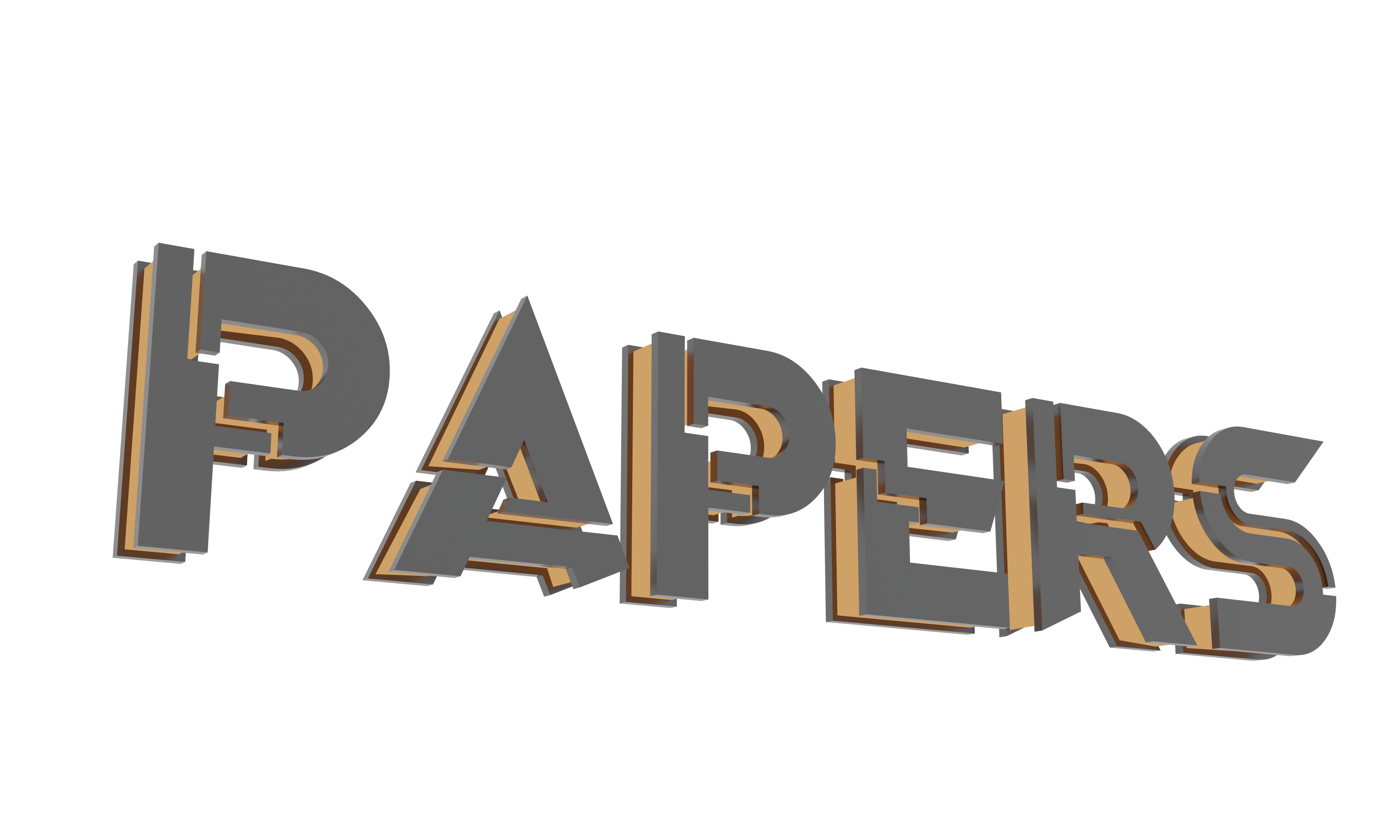
|
|
| At each symposium, up the three papers are recognized with a Best Paper Award. Here we compile and maintain the list of previous award winners. Starting in 2021 a test-of-time
award is also given each year to a paper that appeared at least 10 years before and has generated the most impact. The test-of-time award is based on a vote by all IPC members.
|
| 2025 |
Best Paper Award:
The Affine Heat Method
Yousuf Soliman and Nicholas Sharp
Honorable Mentions:
GreenCloud: Volumetric Gradient Filtering via Regularized Green's Functions
Kenji Tojo & Nobuyuki Umetani
Atomizer: Beyond Non-Planar Slicing for Fused Filament Fabrication
Xavier Chermain, Giovanni Cocco, Cédric Zanni, Eric Garner, Pierre- Alexandre Hugron & Sylvain Lefebvre
Test of Time Award:
A concise and provably informative multi‐scale signature based on heat diffusion
Sun Jian, Maks Ovsjanikov, and Leonidas Guibas, Symposium on Geometry Processing, 2009
|
| 2024 |
Best Paper Award:
1-Lipschitz Neural Distance Fields
Guillaume Coiffier and Louis Bethune
Best Paper Award Runner up:
Cascading upper bounds for triangle soup Pompeiu-Hausdorff distance
Leonardo Sacht and Alec Jacobson
Integer-Sheet-Pump Quantization for Hexahedral Meshing
Hendrik Brückler, David Bommes, and Marcel Campen
Test of Time Award:
Laplacian Surface Editing
Olga Sorkine, Daniel Cohen-Or, Yaron Lipman, Marc Alexa, Christian Rössl, and Hans-Peter Seidel, Symposium on Geometry Processing, 2004
|
| 2023 |
Best Paper Award:
Poisson Manifold Reconstruction - Beyond Co-dimension One
Maximilian Kohlbrenner, Singchun Lee, Marc Alexa, Misha Kazhdan
Best Paper Award Runner up:
BPM: Blended Piecewise Möbius Maps
Shir Rorberg, Amir Vaxman, and Mirela Ben-Chen
Best Paper Award Honorable mention:
Singularity-Free Frame Fields for Line Drawing Vectorization
Olga Guțan, Shreya Hegde, Erick Jimenez Berumen, Mikhail Bessmeltsev, and Edward Chien
Test of Time Award:
Discrete Laplace operators: No free lunch
Max Wardetzky, Saurabh Mathur, Felix Kälberer, Eitan Grinspun - Symposium on Geometry Processing, 2007
|
| 2022 |
Best Paper Award:
TinyAD: Automatic Differentiation in Geometry Processing Made Simple
Patrick Schmidt, Janis Born, David Bommes, Marcel Campen, Leif Kobbelt
Best Paper Award 2nd Place:
Rational Bézier Guarding
Payam Khanteimouri, Manish Mandad, Marcel Campen
Best Paper Award 3rd Place:
Precise High-order Meshing of 2D Domains with Rational Bézier Curves
Jinlin Yang, Shibo Liu, Shuangming Chai, Ligang Liu, Xiao-Ming Fu
Test of Time Award:
As-Rigid-As-Possible Surface Modeling
Olga Sorkine-Hornung and Marc Alexa - Symposium on Geometry Processing, 2007
|
| 2021 |
Best Paper Award:
Surface Map Homology Inference
Janis Born, Patrick Schmidt, Marcel Campen, Leif Kobbelt
Best Paper Award 2nd Place:
Geodesic Distance Computation via Virtual Source Propagation
Philip Trettner, David Bommes, Leif Kobbelt
Best Paper Award 3rd Place:
SimJEB: Simulated Jet Engine Bracket Dataset
Eamon Whalen, Azariah Beyene, Caitlin Mueller
Test of Time Award:
Poisson Surface Reconstruction
Michael Kazhdan, Matthew Bolitho, and Hugues Hoppe Symposium on Geometry Processing, 2006
|
| 2020 |
Honorable Mention:
EGGS: Sparsity-Specific Code Generation
Xuan Tang, Teseo Schneider, Shoaib Kamil, Aurojit Panda, Jinyang Li and Daniele Panozzo
Best Student paper:
A Laplacian for Nonmanifold Triangle Meshes
Nicholas Sharp and Keenan Crane
Best Paper:
Properties of Laplace Operators for Tetrahedral Meshes
Marc Alexa, Philipp Herholz, Max Kohlbrenner, and Olga Sorkine-Hornung
|
| 2019 |
A Family of Barycentric Coordinates for Co-Dimension 1 Manifolds with Simplicial Facets
Zhipei Yan and Scott Schaefer
Hierarchical Functional Maps between Subdivision Surfaces
Meged Shoham, Amir Vaxman and Mirela Ben-Chen
|
| 2018 |
A unified discrete framework for intrinsic and extrinsic Dirac operators for geometry processing
Zi Ye, Olga Diamanti, Chengcheng Tang, Tim Hoffmann and Leonidas Guibas
QuadFlow: A Scalable and Robust Method for Quadrangulation
Jingwei Huang, Yichao Zhou, Jonathan Shewchuk, Matthias Niessner, Leonidas Guibas
Sensor-aware Normal Estimation for Range Scan Point Clouds
Marc Comino Trinidad, Carlos Andujar, Pere Brunet, Antonio Chica
|
| 2017 |
Modeling and Exploring Co-variations in the Geometry and Configuration of Man-made 3D Shape Families
Hamid Laga and Hedi Tabia
Spectral Affine-Kernel Embeddings
Max Budninskiy, Beibei Liu, Yiying Tong, Mathieu Desbrun
Isometry-Aware Preconditioning for Mesh Parameterization
Sebstian Claici, Mikhail Bessmeltsev, Scott Schaefer, Justin Solomon
|
| 2016 |
Splines in the Space of Shells
Behrend Heeren, Martin Rumpf, Peter Schröder, Max Wardetzky, Benedikt Wirth
Non-Rigid Puzzles
Or Litany, Emanuele Rodola, Alex M. Bronstein, Michael M. Bronstein, Daniel Cremers
Symmetry and Orbit Detection via Lie-Algebra Voting
Zeyun Shi, Pierre Alliez, Mathieu Desbrun, Hujun Bao, Jin Huang
|
| 2015 |
Tight Relaxation of Quadratic Matching
Itay Kezurer, Shahar Z. Kovalsky, Ronen Basri, Yaron Lipman
Robust Articulated-ICP for Real-Time Hand Tracking
Andrea Tagliasacchi, Matthias Schröder, Anastasia Tkach, Sofien Bouaziz, Mario Botsch, Mark Pauly
|
| 2014 |
Designing N-PolyVector Fields with Complex Polynomials
Olga Diamanti, Amir Vaxman, Daniele Panozzo, Olga Sorkine-Hornung
Super 4PCS: Fast Global Pointcloud Registration via Smart Indexing
Nicolas Mellado, Dror Aiger, Niloy Mitra
|
| 2013 |
Consistent Shape Maps via Semidefinite Programming
Qixing Huang, Leonidas Guibas
Noise-Adaptive Shape Reconstruction from Raw Point Sets
Simon Giraudot, David Cohen-Steiner, Pierre Alliez
Practical Anisotropic Geodesy
Marcel Campen, Martin Heistermann, Leif Kobbelt
|
| 2012 |
Computing Extremal Quasi-Conformal Maps
Ofir Weber, Denis Zorin, Ashish Myles
Modeling Polyhedral Meshes with Affine Maps
Amir Vaxman
Stream Surface Parametrization by Flow-Orthogonal Front Lines
Maik Schulze, Tobias Germer, Christian Roessl, Holger Theisel
|
| 2011 |
On approximation of the Laplace-Beltrami Operator and the Wilmore Energy of Surfaces
Klaus Hildebrandt, Konrad Polthier
A Complex View of Barycentric Mappings
Ofir Weber, Mirela Ben-Chen, Craig Gotsman, Kai Hormann
Multiscale Biharmonic Kernels
Raif M. Rustamov
|
| 2010 |
Trivial Connections on Discrete Surfaces
Keenan Crane, Mathieu Desbrun, Peter Schröder
On Discrete Killing Vector Fields and Patterns on Surfaces
Mirela Ben-Chen, Adrian Butscher, Justin Solomon, Leonidas Guibas
Polygonal Boundary Evaluation of Minkowski Sums and Swept Volumes
Marcel Campen, Leif Kobbelt
|
| 2009 |
A Concise and Provably Informative Multi-Scale Signature Based on Heat Diffusion
Jian Sun, Maks Ovsjanikov, Leonides Guibas
Rotating Scans for Systematic Error Removal
Fatemeh Abbasinejad, Yong J. Kil, Andrei Sharf, Nina Amenta
Estimating the Laplace-Beltrami Operator by Restricting 3D Functions
Ming Chuang, Linjie Luo, Benedict J. Brown, Szymon Rusinkiewicz, Michael Kazhdan
|
| 2008 |
Surface sampling and the intrinsic Voronoi diagram
Ramsay Dyer, Hao Zhang, Torsten Möller
Polyhedral Finite Elements Using Harmonic Basis Functions (student paper)
Sebastian Martin, Peter Kaufmann, Mario Botsch, Martin Wicke, Markus Gross
Global Intrinsic Symmetries of Shapes (student paper)
Maks Ovsjanikov, Jian Sun, Leonidas Guibas
|
| 2007 |
Voronoi-based Variational Reconstruction for Unoriented Point Sets
Pierre Alliez, David Cohen-Steiner, Yiying Tong, Mathieu Desbrun
|
| 2006 |
PriMo: Coupled Prisms for Intuitive Surface Modeling
Mario Botsch, Mark Pauly, Markus Gross, Leif Kobbelt
|
|
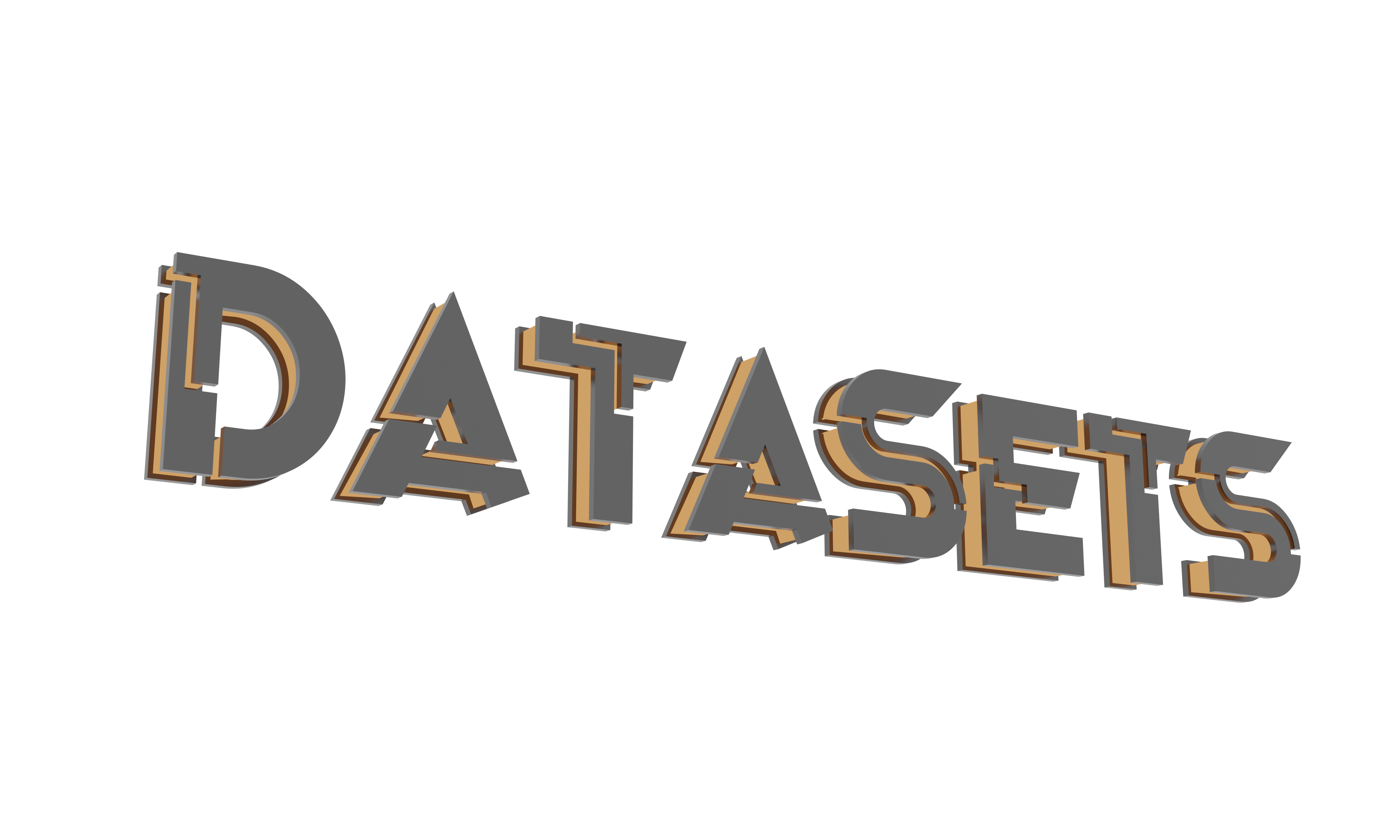
|
|
| This award is aimed to encourage and recognize the importance of the distribution of high-quality datasets on which geometry processing algorithms are tested. Since 2016 it is given to authors of
top-quality datasets and benchmarks provided to the community of Geometry Processing as testbed for present and future algorithms. Nominations can be sent to
awardnominations@geometryprocessing.org
all year.
|
| 2021 |
HexaLab
Matteo Bracci, Marco Tarini, Nico Pietroni, Marco Livesu, Paolo Cignoni
HexaLab is a WebGL application for real time visualization, exploration and assessment of hexahedral meshes.
|
| 2020 |
ScanNet
Angela Dai, Angel X. Chang, Manolis Savva, Maciej Halber, Thomas Funkhouser, and Matthias Nießner
ScanNet is an RGB-D video dataset containing 2.5 million views in more than 1500 scans, annotated with 3D camera poses, surface reconstructions, and instance-level semantic segmentations.
|
| 2019 |
ABC: A Big CAD Model Dataset For Geometric Deep Learning
Sebastian Koch, Albert Matveev, Zhongshi Jiang, Francis Williams, Alexey Artemov, Evgeny Burnaev, Marc Alexa, Denis Zorin, Daniele Panozzo
The ABC-Dataset (paper, data) is a collection of one million Computer-Aided Design (CAD) models for research of geometric deep learning methods and applications. Each model is a collection of explicitly parametrized curves and surfaces, providing ground truth for differential quantities, patch segmentation, geometric feature detection, and shape reconstruction.
|
| 2018 |
ShapeNet: An ongoing effort to establish a richly-annotated, large-scale dataset of 3D shapes.
Angel X. Chang, Thomas Funkhouser, Leonidas Guibas, Pat Hanrahan, Qixing Huang, Zimo Li, Silvio Savarese, Manolis Savva, Shuran Song, Hao Su, Jianxiong Xiao, Li Yi, and Fisher Yu
|
| 2017 |
Thingi10k: A Dataset of 10,000 3D-Printing Models
Qingnan Zhou and Alec Jacobson
|
| 2016 |
MPI FAUST Dataset: A data set containing 300 real, high-resolution human scans, with automatically computed ground-truth correspondences.
F. Bogo, J. Romero, M. Loper, and M. Black
|
|









